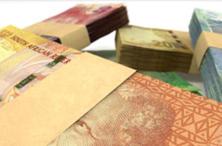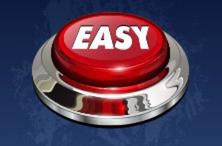Poker Glossary
We are here to help you speak the poker lingo, offering you a glossary that covers all the major terms in the game. Follow our guide and you’ll be talking like a pro in no time.
Action: If the action is on you, then it means it is your turn to bet, call, check, fold or raise.
All-in: When a player is 'all-in', it means they have bet all of their chips.
Ante: An amount of money or chips which each player must put into the pot before a card is dealt. Antes are common in the later stages of a poker tournament.
Bad beat: Losing a hand when you were the favourite to win.
Bankroll: Your overall poker budget.
Big Blind: A compulsory blind bet paid by the player two seats to the left of the dealer in many poker variants. See also small blind.
Bluff: A bet with a hand that is unlikely to be ahead. See also semi-bluff.
Brick: Also known as a 'blank'. A card which does not change the outcome of a hand.
Bubble: In a tournament, the bubble is the last unpaid place before the money e.g. if 27 players get paid then the player finishing 28th is said to have 'bubbled'.
Button: The seat at the table where the nominal dealer sits. This player is last to act after the flop, turn and river.
Call: To match an opponent's bet.
Check: To bet nothing, and move the action on to the next player. If a player before you has bet then you cannot check.
Check-raise: Checking, seeing an opponent bet and then raising when the action is back on you.
Community cards: Cards dealt face up in the middle of the table, which are shared by all the players in a hand.
Continuation bet: Betting on the flop after raising pre-flop.
Cooler: Also known as a cold deck. A situation where two players are dealt particularly strong hands, making it almost inevitable that one player will lose a lot of money. An example is one player being dealt pocket kings pre-flop and another being dealt pocket aces.
Cut-off: The seat to the right of the button.
Donk: A particularly bad player, similar to a 'fish'.
Donk-bet: To lead out from first position after only calling a bet on the previous street.
Double Belly Buster: Also known as a 'double gutshot'. A combination of four cards (using hole cards and community cards) which are not sequential, but which have two ways to make a straight, for example if a player's hole cards are 6-7 and the flop is 3-5-9 (they can hit a 4 or an 8 to make a straight).
Equity: The mathematical chance of winning a pot, usually expressed as a percentage.
Fish: A weak or inexperienced player.
Flip: Also known as a 'coinflip' or 'race', a flip refers to an all-in situation between two players where both have a roughly 50% chance of winning.
Flop: In Texas Hold'em or Omaha Hold'em, the first three community cards. These are all dealt at once, after pre-flop betting action is concluded.
Flush: A hand comprising five cards of the same suit.
Fold: To give up your hand after an opponent has bet.
Four of a Kind: Also known as 'quads', a hand with four cards of the same value.
Full House: Also known as a 'boat'. A poker hand with three cards of one value and two of another, e.g. three kings and two queens is known as 'kings full of queens'.
Gutshot: A straight draw where a player needs one specific card to hit. For example, 3-4-5-7.
Heads-up: A poker cash game or tournament between two players.
Hero Call: To make a call with a relatively weak holding, believing that your opponent is even weaker.
Hijack: The seat to the right of the cut-off.
Hole Cards: A player's starting cards, dealt face down before the flop.
Kicker: The highest unpaired card in a one pair, two pair or three of a kind hand. This is often used as a kind of tie-breaker to determine who wins the hand.
Lead out: To make the first bet on any given round of action.
Limp: To just call before the flop, when no player has made a raise.
Loose: A loose player plays more hands than average, so will be likely to play weak hands as well as strong ones.
Lowball: A poker variant, such as Razz, where the lowest hand wins.
Nit: A player who plays very few hands. The opposite of a loose player.
No-Limit: No-Limit poker games have no maximum amount that a player can bet.
Nuts: The best possible hand on any given board.
Omaha Hold'em: Often abbreviated to Omaha, this is a poker variant where players start with four hole cards and have to use exactly two of them along with the community cards to make a five-card hand.
Open ended straight draw: Four cards in a row sequentially, meaning a player can hit one card at either end to make a straight, e.g. 6-7-8-9 or 10-J-Q-K.
Overbet: To bet more than the amount of money in the pot.
Overcard: A hole card whose value is higher than any of the cards on the flop and/or turn.
Pair: Two cards of the same value, e.g. two aces are known as 'pocket aces'.
Pocket Pair: Two hole cards of the same value.
Position: If you are in position you are last to act, so you can wait to see what the other players to before making your decision.
Pot-Limit: The maximum bet in Pot-Limit poker games is the amount of money already in the pot. This sometimes prevents players from moving all-in before the flop. It is common in Omaha.
Pot odds: The ratio of the size of a pot to the amount needed to call a bet.
Raise: To bet more than your opponent, and force them to either call, fold, or re-raise.
Razz: A poker variant where players end with seven cards and have to make the lowest possible five-card hand.
Rebuy: A rebuy tournament allows players to enter for a second (and often a third, fourth, etc.) time after losing their chips.
River: The fifth and final community card, dealt after the flop and turn.
Royal Flush: An ace-high straight flush, e.g. 10-J-Q-K-A of diamonds. This is the best possible hand in most poker variants.
Running cards: Also known as 'runner-runner' or 'backdoor'. If you need running cards to win a hand, it means you need a specific combination of two cards, but cannot win by hitting one card alone. For example, if you have suited hole cards and another card of that suit hits the flop, you will need running cards to make a flush.
Satellite: A tournament where the winner earns a seat into a bigger tournament, rather than winning a cash prize.
Semi-bluff: A bet with a hand that is unlikely to be ahead, but is likely to have out.
Shootout: A tournament with multiple tables, where each table plays down to one player before moving onto the next round.
Showdown: If more than one player remains after the final round of betting then the hand goes to showdown, meaning all remaining players must turn their hole cards face up to determine who has the stronger hand.
Sit-n-Go: Also known as 'sit and go'. A poker tournament with a pre-set number of players, which starts as soon as the designated number of players have registered.
Slowroll: Taking a long time to make a straightforward call with a strong hand. Slowrolling is seen as disrespectful, though it is not officially against the rules.
Small blind: A compulsory bet, usually half the size of the big blind, paid by the player to the left of the dealer in a tournament or cash game.
Squeeze play: Re-raising after one player has bet or raised and a second player has called.
Straight: A hand with five cards of sequential value, e.g. 3-4-5-6-7 or 9-10-J-Q-K.
Straight Flush: A hand with five cards of sequential value, all of the same suit, e.g. 5-6-7-8-9 of clubs.
Street: Another name for a round of action. The flop, turn and river are regarded as different 'streets'.
Stud: A poker variant where players have seven cards, some face up and some face down, and have to make the best possible five-card hand.
Suited: Usually used in relation to hole cards, suited cards are both clubs, both diamonds, both clubs and both spades.
Suited connectors: Two cards of the same suit, with sequential values, e.g. eight-nine of hearts.
Texas Hold'em: The most common form of poker. Players start with two hole cards, with five community cards also being dealt, and have to make the best five-card hand.
Three-bet: The second raise pre-flop (the big blind counts as the first bet), or the third bet on the flop, turn or river.
Three of a kind: Also known as 'a set' or 'trips'. Three cards of the same value.
Tilt: Losing emotional control and making bad plays as a consequence, often after losing a big pot or suffering a bad beat.
Turn: The fourth community card. Dealt after the flop.
Two pair: Two cards of one value and two of another, e.g. two fours and two fives.
Under the gun: The first player to act
___ up: The suffix 'up' refers to a two pair hand, with the higher pair named. For example, a hand of A-A-4-4-2 can be referred to as 'Aces Up'.
Value bet: Essentially the opposite of a bluff - a bet made in the hope that the opponent makes a call.
Wheel: A straight, running ace to five (i.e. A-2-3-4-5). Aces can be high or low in many poker variants.



